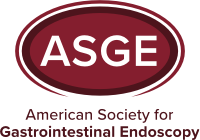Geisinger Medical Center
Geisinger Medical Center
Dept of Gastroenterology and Nutrition, 21-11
100 N. Academy Ave
Danville, Pennsylvania 17822-2111
(570) 271-6856 (V)
Website
2 Positions Available
Program Type: Both ERCP & EUS
Authorized Administrative Official: Shelby Bennage (email)
Program Director: Harshit Khara, MD, FASGE, FACG (email)
Program Director Phone: 570-271-6651
Program Director Fax: 570-271-6852
Duration: 1 Year
Inclusive Dates of the Program: 7/1/2025 to 6/30/2026
Program Website: www.geisinger.edu/education
Accepts applicants from outside of North America? No
Accepts applicants with J1 visas? No
Accepts applicants with H1B visas? No
Accepts applicants with E3 visas? No
Supervised ProceduresProcedure |
Faculty Involved in AEF Training | Total Annual Volume | Annual Volume with hands-on AEF Involvement |
|---|---|---|---|
| ERCP | 3 | 700 | 575 |
| EUS | 4 | 1200 | 800 |
| Lower GI EMR | 3 | 375 | 320 |
| Esophagogastroduodenal EMR | 3 | 125 | 100 |
| Esophagogastroduodenal ablation (e.g., RFA) | 3 | 125 | 100 |
| Small bowel enteroscopy | 3 | 60 | 50 |
| ESD | 3 | 30 | 10 |
| POEM | 2 | 40 | 20 |
Unsupervised Trainee ActivitiesProcedure |
Value |
|---|---|
| General GI procedures (per year) | 457 |
| Inpatient service (weeks/year) | 8 |
| Ambulatory clinics (per year) | 12 |
| Committed time for research (days/month) | 4 |
Program Reporting Summary
The ASGE Training Committee requested that each AEF program voluntarily submit an annual report summarizing their advanced endoscopy procedure volume. You can view the provided report below.
Requirements for Application
- Standard ASGE Application Packet
- ASGE Application
- Post-Undergraduate Education
- USMLE Scores
- Certification of Completion of Residency
- Prior to appointment in the advanced endoscopy fellowship, fellows should have completed a three-year ACGME-accredited gastroenterology fellowship
- Fellows from non-ACGME-accredited programs must have completed at least three years of gastroenterology education prior to starting the fellowship
- Personal Statement
- Curriculum Vitae
- 3 Letters of Reference
Additional Information about Program
The advanced endoscopy fellowship program at Geisinger Medical Center provides a broad hands-on experience in all aspects of interventional endoscopy. The advanced program has been in existence since 2007. The focus is on one-on-one teaching, and fellows are allowed to have a lot of “scope time”. The Geisinger Health System consists of a number of affiliated hospitals, with a catchment area of 31 counties and 2.8 million people. System wide, more than 2,000 EUS and 1,000 ERCP procedures are done annually, with the majority done at the flagship hospital in Danville, PA. We utilize a state-of-the-art 25,000 square foot endoscopy center. This suite has 10 procedure rooms, with 3 rooms having fluoroscopic capability.
All aspects of ERCP are encountered. Spyglass-DS cholangioscopy, difficult stone management, complex biliary stenting, metal stenting, endoscopic treatment of pancreas divisum, needle knife sphincterotomy, and pancreatic endotherapy are all encountered with regularity, so fellows will have adequate exposure to these clinical situations. A large percentage of the ERCPs are in patients with “native papillae” rather than just being re-do procedures.
The EUS service has grown impressively in the past 7 years, with approximately 1,300 cases done annually in Danville alone. On-site cytopathology services are readily available for our FNAs, and the Cytopathology department is exceptionally strong. In Danville, we have state-of-the-art Aloka F75 ultrasound consoles, and we regularly have EUS going in two or even three procedure rooms. We have the forward-viewing Olympus echoendoscope for interventional EUS. We have a steady stream of referrals for endoscopic treatment of pancreatic walled off necrosis, and regularly use the Axios stent for these cases. Trainees will get experience with both radial and linear echoendoscopes, as well as EUS miniprobes.
We have a busy Barrett’s practice, and all ablative treatments are available. Trainees will become competent in the use of endoscopic mucosal resection (EMR), BARR-X radiofrequency ablation, and cryoablation. Other skills that trainees will learn include mucosal resection in duodenum and colon, management of difficult strictures (including incisional therapy of strictures), and enteral and esophageal stenting. Endoscopic submucosal dissection (ESD) is being done, and we have a strong POEM program. We have steady referral for flexible endoscopic incisional therapy for Zenker's (FEIT-Z).
There is ample opportunity and resources for clinical research and internal grants are available to support this. Geisinger has used an electronic medical record system for more than two decades and invests a lot into support of this infrastructure. This in combination with a stable patient demographic creates a great potential for longitudinal clinical research. We frequently collaborate with our department of epidemiology to assist with studies. An animal research facility is available and there are plans to utilize this for fellow teaching of advanced procedures.
We have a close relationship with excellent minimally invasive surgeons, surgical oncologists, medical oncologists, radiation oncologists, pathologists and cytopathologists, including regular conferences.
Please Note: All data in this program description is entered on a voluntary basis
